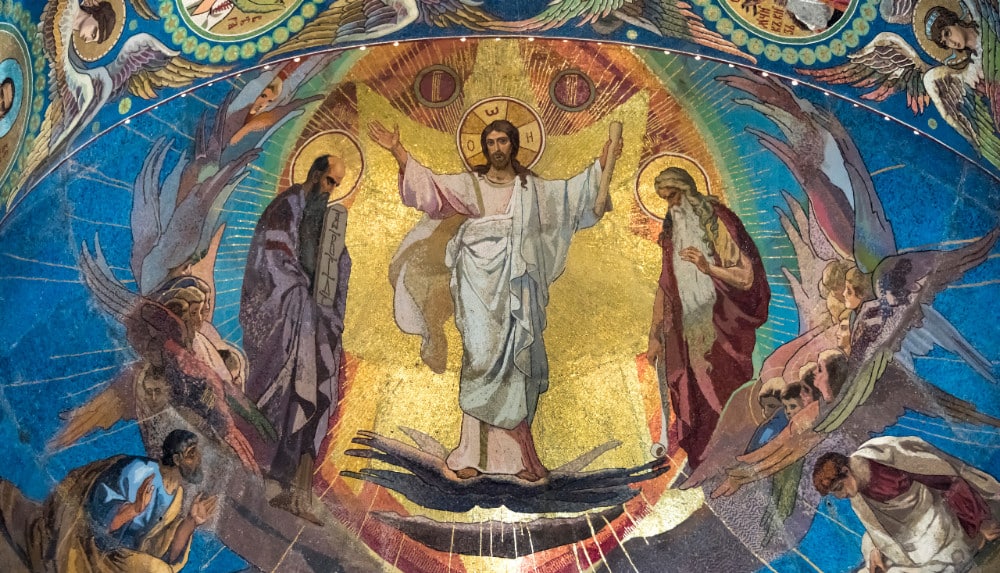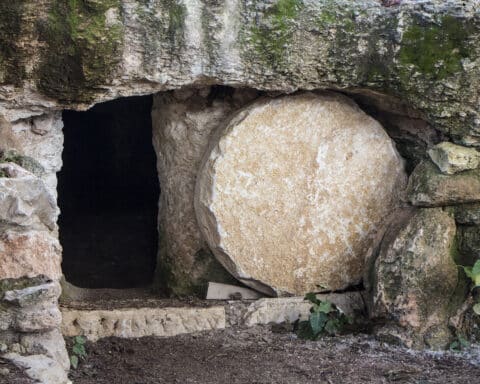
— Ken Theodore, Townsville, Australia
Answer: “Rose again” is an English translation of the Latin word in the Creed, resurrexit. It is an accurate translation of this Latin verb, which is from two words: re (again) and surrexit (he rose). The Greek word is anastasis and is similar: ana (again) + stasis (to stand).
Your question ponders why “again” is necessary and suggests that it would be sufficient to say “he rose” from the dead. Some questioners over the years have also wondered if this means that the Lord rose more than once. But “rose again” is a fairly normal way of speaking. For example, I might say, “Last night I went to bed at 10 p.m., and this morning at 6 a.m., I got up again.” While the word “again” is not strictly necessary in the sentence, we often speak this way; it is a common idiom in many languages. Technically, it communicates a return to an original state: “I was up, I lay down, I got up again.” That is to say, “I returned to the state I was in before I slept.” So, Christ arose again — that is to say, he was alive, he laid down his life and died, but then he arose, returning once again to life. There is no implication in this idiom that he arose twice, but rather that he returned to the state of being physically alive, which he had before. I hope this helps.
Latin in the Mass
Question: Are parish priests allowed to say Latin during the Mass? Our parish priest says Latin almost weekly (i.e. Kyrie). Is it proper for this Latin to be said during the Sunday Mass?
— Jim Hammond, Decatur, Indiana
Answer: Yes, it is certainly proper and permitted to use Latin in the sacred liturgy. The Second Vatican Council is often credited (or blamed) for abolishing Latin. However, this is not true. The council actually decreed: “Particular law remaining in force, the use of the Latin language is to be preserved in the Latin rites. But since the use of the mother tongue, whether in the Mass, the administration of the sacraments or other parts of the liturgy, frequently may be of great advantage to the people, the limits of its employment may be extended. This will apply in the first place to the readings and directives, and to some of the prayers and chants, according to the regulations on this matter to be laid down separately in subsequent chapters” (Sacrosanctum Concilium, No. 36:1-2). So, while the vernacular is more widely permitted in the novus ordo, the total disappearance of Latin from the Mass was not envisioned and certainly not required.
Pope St. Paul VI later published Jubilate Deo, which was intended as a “minimum repertoire of Gregorian chant.” It was intended “to make it easier for Christians to achieve unity and spiritual harmony with their brothers and with the living tradition of the past. Hence it is that those who are trying to improve the quality of congregational singing cannot refuse Gregorian chant the place which is due to it.”
There was an additional purpose of this small collection: “Since the faithful from different countries come together ever more frequently, it is fitting that they know how to sing together at least some parts of the Ordinary of the Mass in Latin, especially the Creed and the Lord’s Prayer, set to the simpler melodies” (General Instruction of the Roman Missal, No. 41).
So, it is wholly appropriate for you parish priest to use Latin and encourage the faith to learn and sing parts of the Mass that pertain to them in Latin. The “Kyrie” you mention is actually Greek (the only Greek left in the Western rites), but it is part of the body of older chants every Catholic should know.
There are other aspects of Latin a priest may use. For example, he might recite the Eucharistic Prayer in Latin. Occasionally, and in some places, the new Mass is celebrated entirely in Latin with the exception of the scriptural readings. Given the widespread disappearance of Latin in American parishes, priests should be judicious in reintroducing Latin and help the faithful by teaching and explaining the use of Latin, but the use of Latin is encouraged in official documents and should not be as neglected as it currently is in most places.
Msgr. Charles Pope is the pastor of Holy Comforter-St. Cyprian in Washington, D.C., and writes for the Archdiocese of Washington, D.C. at blog.adw.org. Send questions to msgrpope@osv.com.





